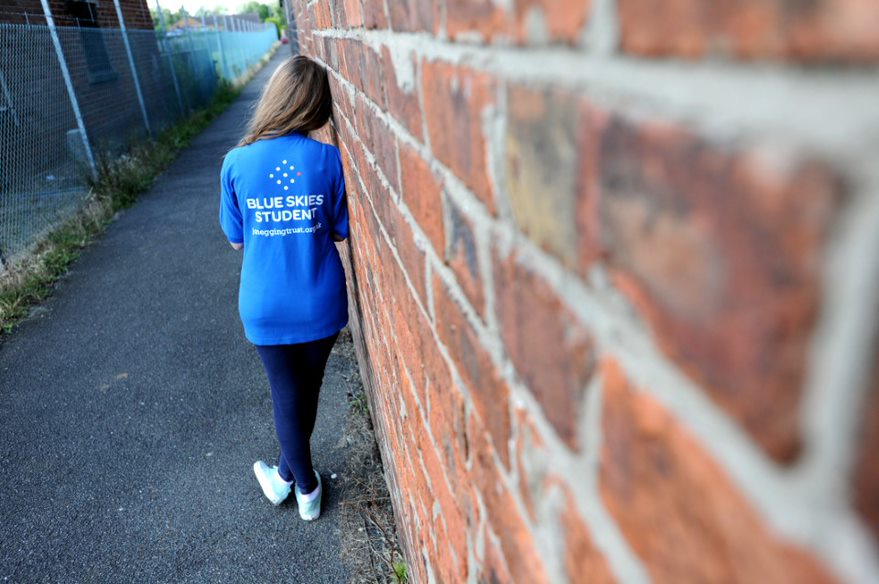JET CEO Dr Emma Egging on ‘Back to School’ during the era of Covid-19

What has become abundantly clear is that no one child’s experience during the Covid-19 pandemic has been the same.
The impact on young people’s lives and routine has been as individual as the effects of the virus itself. Every student returning to school is facing a period of transition which is unique to them and for many teachers the challenge is trying to support every student under their care to get back on track whilst also managing their own fears about the situation. According to the Office for National Statistics, 42% of young people aged 16-29 years said that lockdown had made their mental health worse and a third reported that home education was putting a strain on their relationships. A fifth of young people said they did not have access to the resources they needed to continue their studies from home. Whereas some students have fallen off the track completely, and now have emotional needs which have to be catered for, before their formal education can get back to where it was previously, others never left ‘the track’ and indeed working from home may have promoted an independence and the development of a level of resilience to change that they previously didn’t have.
Having spoken to a number of teachers, including one of our Trustees who is part of the senior leadership team at an Academy school in Lincolnshire, it is apparent that even in the same area schools have responded very differently to the challenges created by Covid-19. His school, for example, were able to continue to deliver 95% of the curriculum on-line during the pandemic because they had the IT infrastructure to minimise the impact of lockdown on the progress of their young people. For the more vulnerable students attending that school (39% of his students are on free school meals) who were unable to access online learning, the school provided lap-tops. For those students who found it difficult to learn remotely, the school were able to support them to come into class and continue their learning. In other cases, at other schools with less funding and who were less fortunate with their pre Covid-19 IT set up, homeworking provision was minimal and their young people will have had a very different experience over the last 6 months. The Education Policy Institute’s Annual Report on the state of education in England finds that the attainment gap between disadvantaged pupils and their peers has ‘stopped closing for the first time in a decade’. Disadvantaged pupils in England are 18.1 months of learning behind their peers by the time they finish their GCSEs.
So where does this leave our young people?
What has struck me following my conversations with teachers and after hearing from young people, is that young people as a whole are incredibly resilient. My own son who turned four in June reached a point during lockdown when he picked a soft toy (panda) and carried it around with him every day as if it was his best friend. He talked to it, ‘fed’ it and interacted with it as if it were a person. He was missing human interaction (beyond that of his immediate family) so much. I was therefore worried when he started school last week, thrown into a class of 25, none of whom had attended his nursery. However, a week into his new school he hasn’t mentioned his old nursery (or panda) once. I have heard the same message from teachers about many of their students who by and large are focusing on the now rather than the future. It is teachers who feel that the pressure is on with the expectation that grades and young people’s learning will be back on track in time for next year’s exams.
This is all well and good for the majority of students who are back in school and getting on with it. But what about the young people who have been living out their worst nightmares over the last 6 months and are now back at school with the same expectation placed on them? A report published in August this year by the NSPCC reported that the conditions created by the pandemic have led to more stress and physical conflict in some families, with the stay at home rules preventing children from leaving home and escaping from physical and emotional abuse. According to Karlene Allen, Commissioning Manager Vulnerable Communities at NHS Bedfordshire: “the elephant in the room is the serious mental health issues facing many of our most vulnerable young people in a post-Covid society. Since March when Covid-19 first appeared, lockdown and the lack of proper education has seen the numbers of mental health, clinical depression, eating disorders, anxiety and suicidal intentions increase enormously among our most vulnerable children and young persons. The application of coronavirus, lockdown and less education has compounded the matter to a point where, if we’re not careful, we will have a generation of youngsters growing into adults who will rely on future services both financially, emotionally and socially.”
So what can be done?
Over lockdown the Jon Egging Trust has been innovating our programmes; in particular concentrating on two key areas – firstly creating resources as part of our new JET Inspired programme –harnessing our key values of inspiration, teamwork and leadership. Through the production of resources that link with the school PSHE (personal, social and health education) curriculum we will bring the life and work skills demonstrated by some of our key programme partners such as the RAF Red Arrows, into the classroom to support young people to navigate their way through these unprecedented times and to help them think about their futures. JET Inspired films and the accompanying lesson plans and activities, which will be launched by JET from January 2021, can be used independently by schools and youth organisations, or they can be delivered in conjunction with our other Blue Skies and Inspirational Outreach programmes through a blended digital/face to face approach to the delivery of our programmes which will see JET increase our reach from the 10,000 young people we currently support to stay in education and on the right track for them, to reach as many young people as possible across the UK who are in need of our help.
Secondly, whilst the aim of the Jon Egging Trust has always been to help young people at risk of falling out of education to re-engage with learning and stay in school, our vision has also been to help young people identify their strengths and set them on the best career path for them – enabling them to be the best they can be.
Helping young people get a foot in the door in the jobs market is now vital.
With everything that is going on in the world right now it is perhaps easiest to focus on the present, but we cannot ignore the serious issues on the horizon. According to a report published by the Youth Employment Group, 760,000 young people were not in education or employment before the pandemic and there are fears that there will be an additional 640,000 unemployed 18-24 year olds by the end of the year. This means that no matter how hard students and teachers work to keep learning on track, the future job situation is looking very shaky indeed. Supporting young people not just to get good grades, but helping them get a foot in the door in the jobs market, helping future generations be more employable, is more important than it has ever been. Whilst many young people are resilient and focusing on the moment, others coming up to their GCSE or A-Levels have described feeling as if they have to put their future plans on hold, having had the rug pulled out from under them. According to Zoe Whitmore, Principle of Nacro in Spalding “there are options out there. It is important now that young people stay in education and training and prepare for the jobs market of the future to give them the best chance”.
JET supports the students who are at serious risk of disengaging with the system.
With fundraising support, the next five years will see JET extending our support for young people from 7-16 up to age 24 through the provision of JET Future advisors in all of the areas where we operate. Whilst the government have plans to support career advisors to return to schools, JET supports the students who are at serious risk of disengaging with the system. It takes time to build a level of trust and to truly get to know each student as an individual and thus the importance of JET being able to offer the 600 Blue Skies students we currently work with every year, and more, the opportunity to be supported appropriately into the next stage of their educational journey or through securing vocational training or employment.
As I write I am hearing on the news that the daily infection rate is going up; the government has issued restrictions on social gatherings. Another lockdown over the winter feels highly likely.
In the same way that the nation’s approach to home working has been forced to change, so too the pandemic has reshaped the way young people see education. One of the young people we have been speaking to said that despite everything that has been happening, her anxiety has actually decreased during the last 6 months. She told us that so much of the education system is archaic, from starting at 9am and finishing at 3pm (rather than starting later in the day which would be more in line with young people’s sleep patterns) and having a very long break over the summer (all a throwback to the olden days when the majority of young people worked on farms or as other labourers and were expected to work over the summer and after their schooling). It makes sense that pandemic or not, we are in the 21st century and a fresh look at our education system and how it can be refined to support young people and their learning needs is essential, to not only ensure that we can support young people through another potential lockdown but because a blended and more flexible approach to education will help make our schooling more efficient and effective both now and in the future.
To out more about how JET works and how we can support your school contact us:
Call us: 0300 123 3044
Email us: info@joneggingtrust.org.uk
Click here to use our form






















